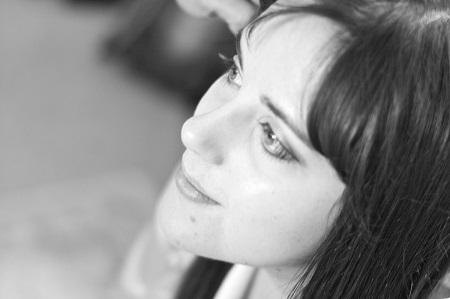I was diagnosed with stage 4 endometriosis in August 2014. Receiving this diagnosis was the culmination of an awful journey I’d been on since beginning my periods at the age of 12, to try and identify the cause of my pelvic pain.
GETTING A DIAGNOSIS
Every time I menstruated I would be incapacitated in total agony for days, as well as around ovulation. After numerous visits to my GP I was prescribed the combined oral contraceptive pill at the age of 13 and told that what I was experiencing was ‘a normal part of being a woman’ and that I was just ‘unlucky’.
While taking the pill did provide a certain amount of relief and allowed me to function normally for a time, it became less effective as the years went on.
In 2009 I began to make frequent doctors trips again as I was anxious about the extent of my pain, which I knew wasn’t normal.
I was also concerned about a number of other symptoms I’d been experiencing, including fatigue, shoulder and chest pains, headaches, blood in my urine, and frequent gastrointestinal upsets. However, four years of visits to various hospital specialists, and several uncomfortable and invasive tests, revealed nothing.
My luck changed at the beginning at 2014, when a gastroenterologist suggested I have an MRI of my small bowel to look for signs of Crohn's disease. This scan revealed a large and solid cyst on my right ovary. An ultrasound scan a couple of weeks later suggested that this cyst was growing, prompting an emergency referral to an oncologist. I was terrified! I underwent a laparoscopy to remove the cyst for analysis. I tolerated the surgery quite well, although the wait beforehand was anxious. When I was awake, the surgeon explained that my cyst has actually been an endometrioma and that, rather unexpectedly, they’d found severe and widespread endometriosis on my ovaries, uterus, peritoneum, pouch of douglas, diaphragm, bladder and bowel.
The surgical team were slightly amazed I've been able to function at all the damage was so bad in some areas.
I was elated to finally have a diagnosis, but shocked to find out I had a chronic illness that I knew nothing about.
My surgeon recommended that I visit my GP to have a Mirena coil fitted to manage my symptoms. However, after conducting my own research and speaking to a number of other women with endometriosis I sought a referral from my GP to a BSGE specialist endometriosis centre, and am now on the waiting list for excision surgery which I hope will dramatically improve my quality of life.
LIVING WITH ENDOMETRIOSIS
Coming to terms with my endometriosis has been very challenging, and is an ongoing process. I have been very angry that it had taken so long to gain a correct diagnosis, devastated that I would not be ‘cured’, and frightened at the prospect of my symptoms getting worse and preventing me from achieving my dreams. I started to worry about everything:
Will I ever have a child? Will I be able to keep working full time? Will people stand by me?
I felt very alone and didn’t think that anyone understood why I was so upset or how much I was suffering. I was also frustrated at how little support was available- my GP and consultant focused on the fertility implications of my diagnosis, rather than helping me cope with day to day life dominated by pain and fatigue.
Endometriosis has affected my participation in every aspect of my life- with friends, family, romantically, in education, and at work. Despite missing much of my education because of pain, I have achieved high grades, and began studying for a PhD in 2012. The fight to gain a diagnosis has hindered my progress, and the stigma associated with having a chronic illness prevented me from disclosing my problems. I thought that opening up about my endometriosis would harm my colleagues’ perceptions of me and my career prospects, but I do not believe this has been the case. I am now working towards completion with better understanding from my university.
Despite how difficult living with endometriosis can be, I want women to know that there is always hope, and that that you can regain control.
I joined a local support group and online discussion forums, which has been invaluable for learning about the condition and gaining emotional support. Meeting so many wonderful people has been the silver lining of this ordeal. I have also tried acupuncture to help manage my pain. But most importantly, I have learned to stop beating myself up for not being able to do as much as I used to. I make my health a priority now, and live much more in the moment by doing more fun things with my friends and husband when I feel well enough.
If there is one message to take away from my story, it’s that you should never stop seeking answers if you have any concerns about your health. I was discouraged by so many dead ends and found it hard to advocate for myself when I felt so unwell, but I persisted for 14 years because I knew that something was wrong. Be stubborn, arm yourself with research, and surround yourself with people who support you.


